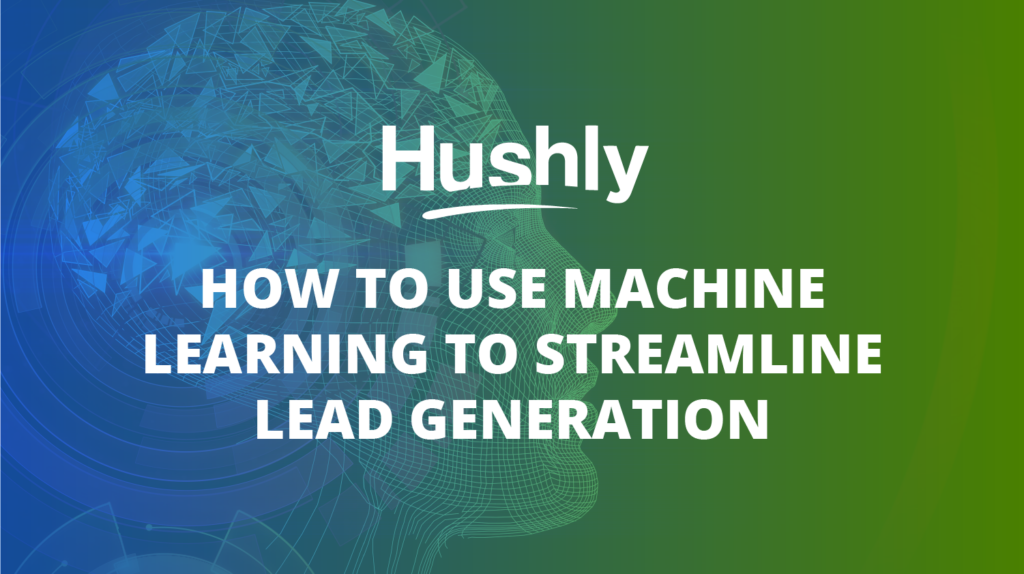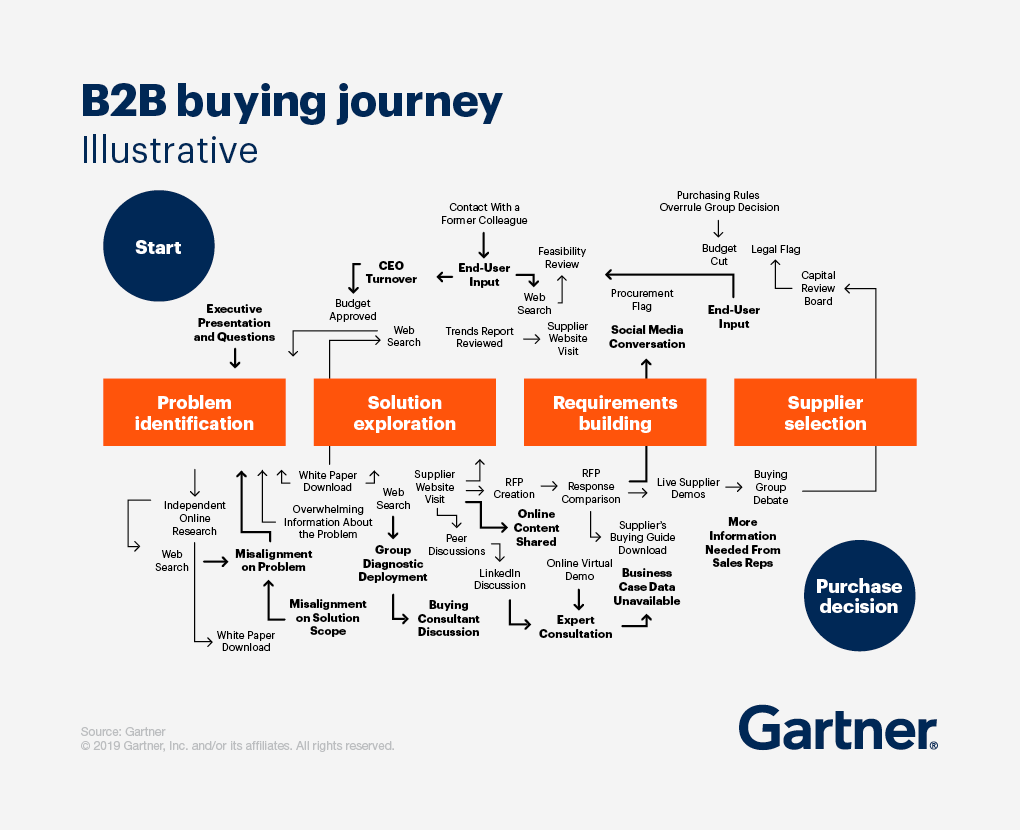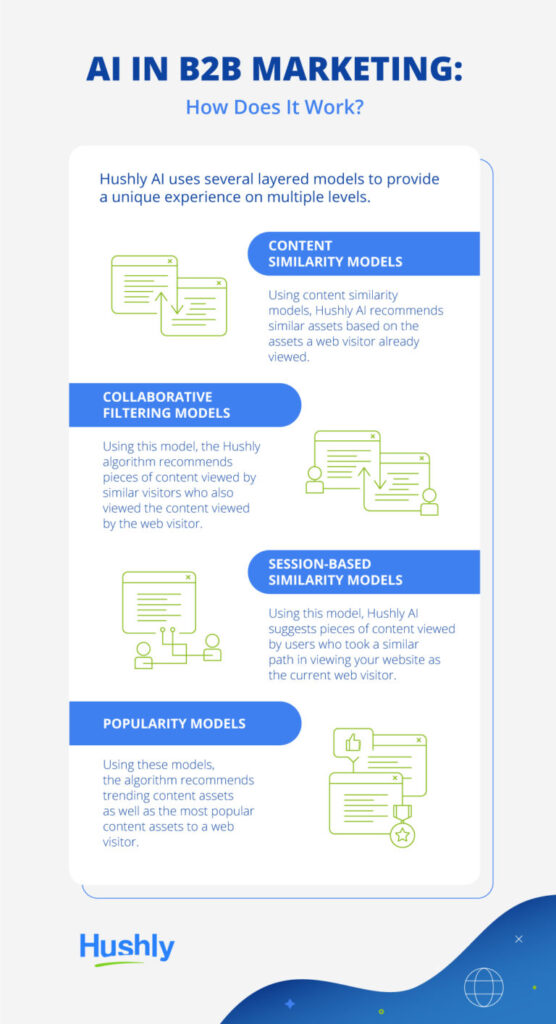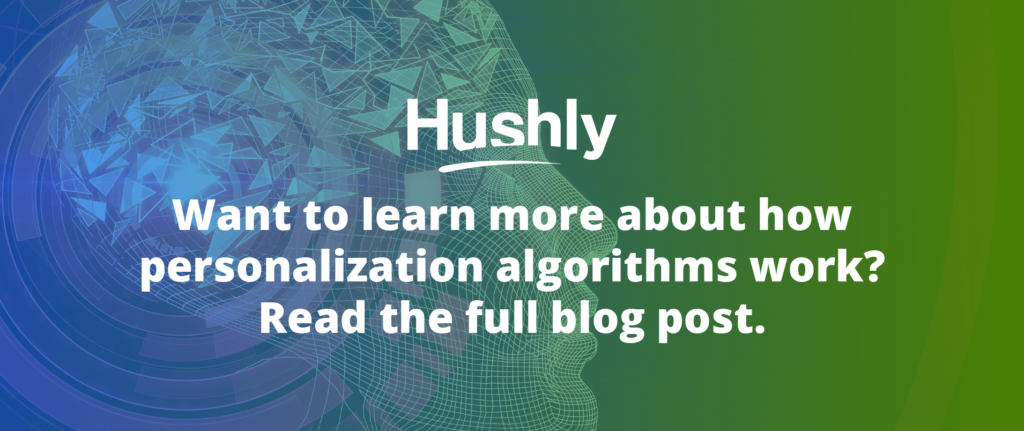Why is Amazon so successful?
Technology and customer experience.
On one hand, most of Amazon’s profit comes from its cloud platform – Amazon Web Services – which generated $10 billion in net revenue last quarter, up 33% from last year.
Most people don’t know Bezos’s profit comes from Amazon’s software services. Amazon actually loses billions each year on its retail operation.
As for the revenue Amazon’s retail outfit produces, 35% is thanks to its recommendation algorithms.
Sure, people like Amazon’s low prices and fast shipping, too, but they also love the personalized shopping experience it provides.
You don’t have to compete with Amazon. However, you can bring the same AI technology and machine learning to your lead generation strategy. Here’s how.

Why Does B2B Marketing Need AI and Machine Learning for Lead Generation?
Fifty-six percent of millennials working in B2B say they hold director-level positions. Meanwhile, 42% say they’re working in managerial roles.
Regardless, the modern B2B buyer is young and they’ve had access to technology most of their life.
They expect a modern and accommodating experience from your B2B website. They don’t want to pick up a phone just to get a question answered – they expect to get all the answers from your website.
Here’s why machine learning for lead generation matters so much today.
It Lets You Remove Forms
Mobile influences 40% of B2B revenue, and 70% of all B2B searches happen on smartphones.
There aren’t many things less mobile-friendly than forms. Even with autocomplete turned on, no one wants to fill out a form on their phone just to access a blog post.
That’s why machine learning for lead generation is so important: it lets you get rid of forms so visitors can browse at their own pace.
Leads can still give you their email address when they’re ready, but they won’t have to fill out a ton of fields – just a business email address and country. Machine learning takes care of the rest.
It Creates a Hyper-Personalized Experience
Eighty-five percent of buyers say they expect brands to personalize the first touchpoint. It’s impossible to create a truly personalized experience without help from machine learning.
You can create all the content you like and research your audience to no end – those are both important. But without machine learning to deliver the content via a hyper-personalized experience, it won’t work.
It Allows Leads to Self-Nurture
The buyer’s journey is not linear, and buyers only spend about 17% of it meeting with potential suppliers – ALL potential suppliers.

Adding machine learning to your lead generation strategy lets visitors self-nurture before your sales or marketing team ever knows they exist.
Visitors can consume content at their own pace and learn about your brand through personalized content recommendations. You can still retarget them later with ads on LinkedIn or Facebook, but on your site, they can self-nurture, unrestricted by forms or pushy sales teams.
How Does Machine Learning Work for Lead Generation?
Every time you open the Amazon or Spotify app, dozens of algorithms jump into action to offer personalized recommendations for every relevant category.
Machine learning for lead generation lets you use some of those same algorithms to organize and distribute your content assets.
- Content Similarity Model: This algorithm monitors which pieces of content a visitor already consumed and how long they stayed on each page to provide relevant recommendations.
- Collaborative Filtering: This analyzes the behavior of every visitor, compares it to the current visitor, and presents recommendations based on the results.
- Session-Based Similarity Model: Differing from content similarity, this model analyzes the path each visitor takes, compares past visits to the present, and offers the next best choice.
- Popular Assets Model: An algorithm flags your content assets for popular, trending, or new status and presents them to visitors based on that activity. You can use these models to flag your assets for importance as well.
On your B2B site, these algorithms work in tandem to make recommendations and – thanks to machine learning – improve themselves over time.

Better yet, for B2B, the path-based algorithms are designed to guide leads down the sales funnel via relevant content assets.
How to Automate Lead Generation with AI and Machine Learning
You have several tools available to use machine learning for lead generation across your website. Here’s what it looks like in practice.
Adaptive Content Hubs
This lets you organize your assets by vertical or pain point – which 58% and 68% of B2Bs say is important to them, respectively.
Plus, adaptive content hubs are interactive, and 58% of buyers are more likely to engage with your content for at least 20 minutes if it’s interactive.
Self-Nurturing Landing Pages
When someone visits one of your pages, there’s a more than 90% chance they’re not ready to buy right now. Most of them won’t be ready to convert for a long time – they just want to consume your content.
A self-nurturing landing page removes dead ends from landing pages. Instead, leads can research at their own pace with personalized content bingeing.
Personalized Exit-Intent Popups
Exit-intent popups are a potent opportunity to capture interest, but most websites waste them by asking for an email address.
Instead, use exit-intent popups to show visitors content they’re sure to love (based on data) and pull them back. More time spent on your site means more opportunities to nudge them toward converting into a lead.
Human Lead Verification
All content marketing and personalization strategies require high-quality data. Unfortunately, inaccurate information on leads plagues most B2Bs.
Removing forms and employing human lead verification ensure you’re only collecting information from valid and high-quality leads. Machine learning removes problems of missing fields, inaccurate details, and fake leads.
Increase Mobile Conversions and Lead Generations with Machine Learning and AI
Adding an AI engine with machine learning to your lead generation strategy can deliver 51% more lead conversions – almost instantly. Hushly’s AI engine is designed with multiple algorithms to deliver a unique experience for every visitor and improve over time.
Want to learn more about how personalization algorithms work? Read the full blog post.




